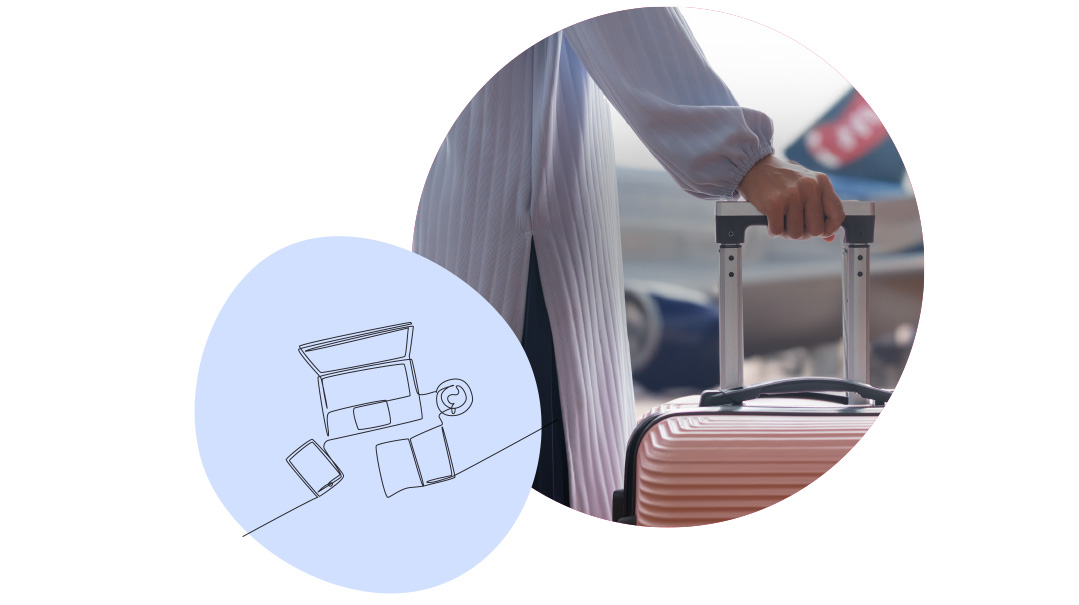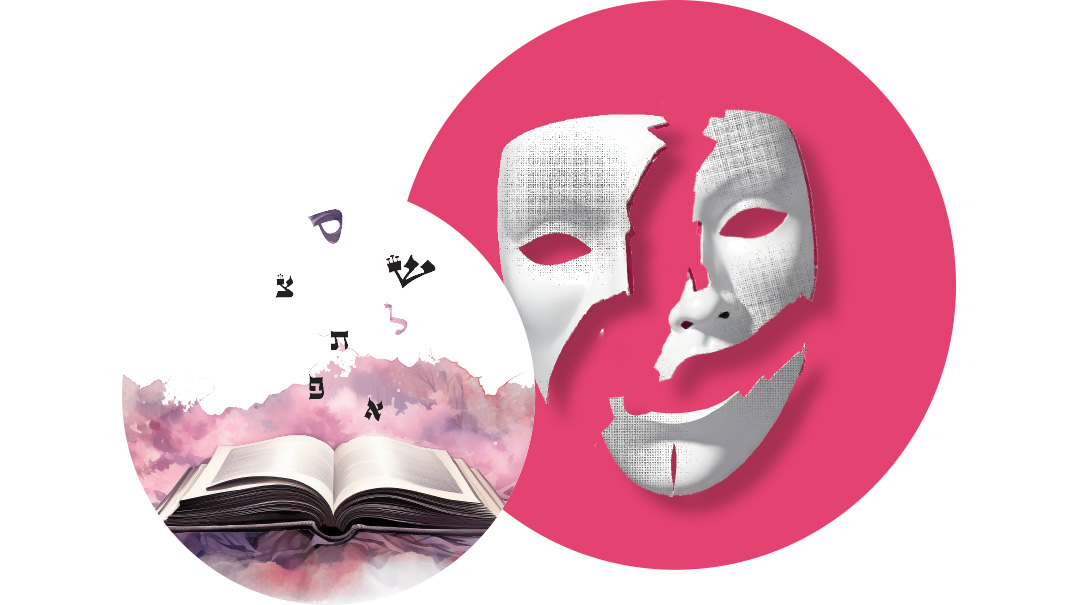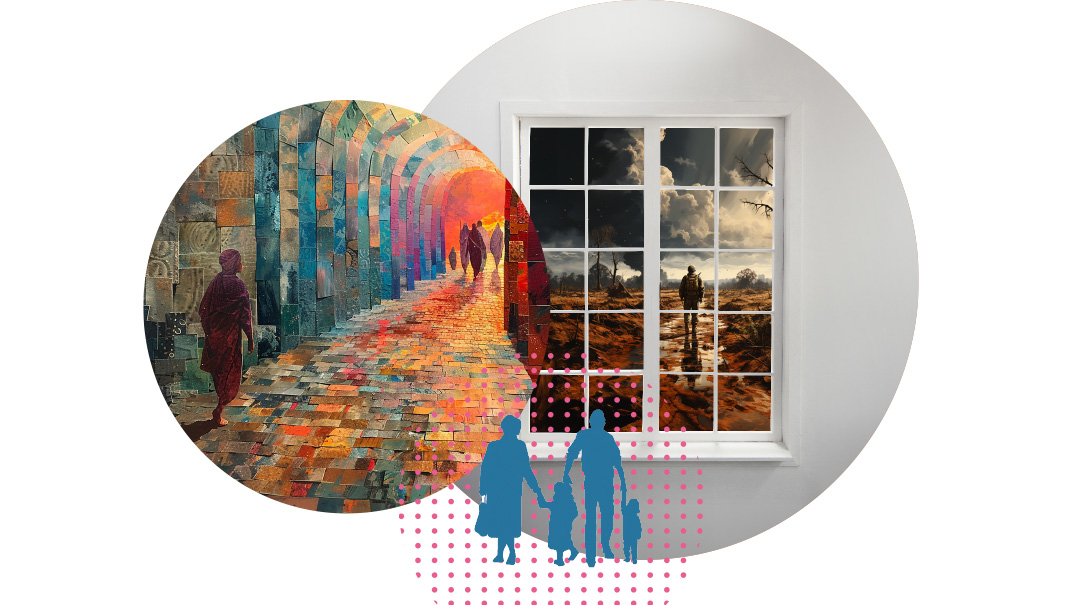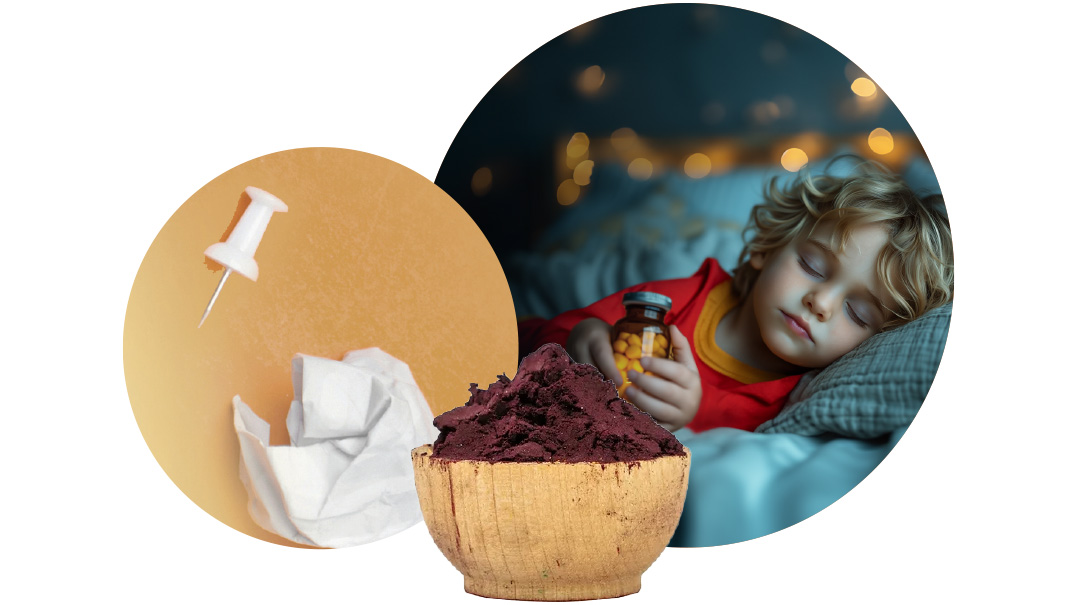Family First Inbox: Issue 792

"I, single and waiting for ten years, have never been so validated"
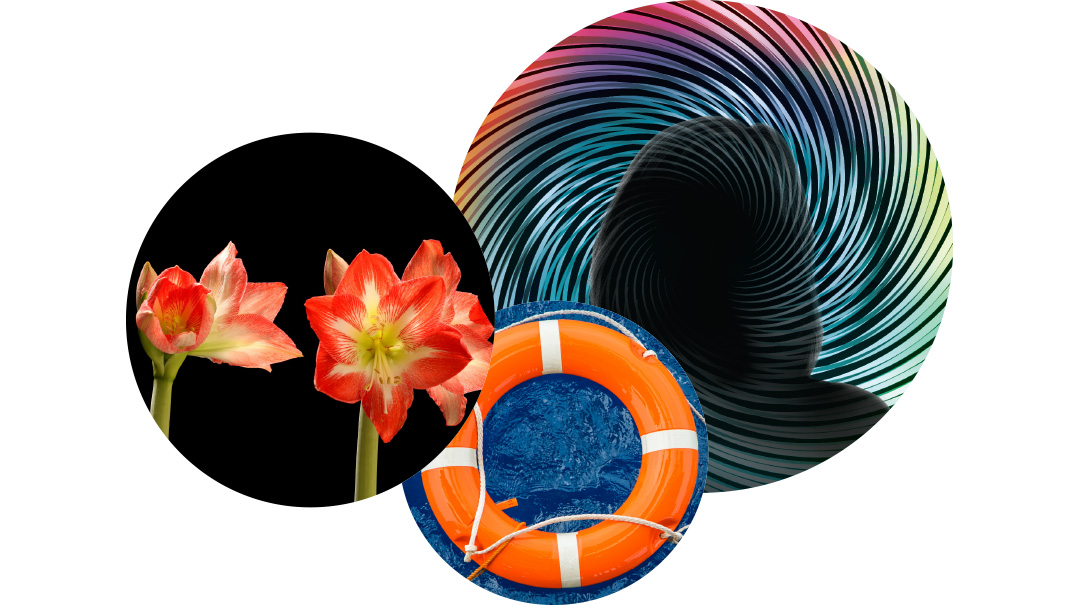
Whole Food Diet for HG Relief [Emerging from the Whirlpool / Issue 791]
Having been in the field of ob-gyn for over 30 years, I have certainly treated my share of hyperemesis gravidarum. I agree: patients become incapacitated, miserable, and even depressed.
With reference to the three-tier approach, I would consider IV hydration to be a Level 1 intervention. The profound weakness that accompanies dehydration can be mitigated by IV therapy, which can be a relief for patients and often serves to tide them over for several days. Patients can “tank up” and go home to function.
Regarding another approach, scientific evidence is emerging that scrupulously eliminating all animal-based food from the diet can tame HG very effectively. That would include completely avoiding meat, chicken, fish, eggs, and dairy. It appears that women who maintain a well-planned, whole food, plant-based diet do significantly better in terms of nausea and vomiting in pregnancy. This dietary approach could be started even before pregnancy.
Among the many excellent references available, I would refer patients to the publications of registered dietician Brenda Davis, a lovely, compassionate, and brilliant giant in the field of whole food plant based eating.
Melinda Mann, MD
What Happened to Privacy? [Follow Me Where: The Conversation Continues / Issue 791]
I wanted to comment on the use of social media in the awesome serial Follow Me, the follow-up feature “Follow Me Where,” and — most important — in real life.
Baruch Hashem, I don’t presently have this nisayon, as I live in a community where the majority of people don’t have smart phones. (Yes, I’m lucky.) So I don’t really feel a need for a smartphone. And honestly, we waste huge chunks of our lives on the Internet (I’m guilty, too), so at least, while you’re away from home, be free.
But every time I go to chutz l’Aretz for a visit, I get culture shock all over again.
Where has our privacy gone? Why do people need to share pictures of the restaurant food they bought? Their kids, okay, I get that — they are adorable, after all. But why don’t you want to keep some of your life private?
The worst I’ve seen was a kallah who posted a picture (at 2 a.m., after her chasunah) of the cute present her chassan bought for her. Why are you busy on your phone, when you have your brand-new chassan right next to you? Please give him your attention.
And why, why, why does everyone need to see how your husband expressed his love for you, his brand-new kallah? Isn’t it private? Please enlighten me.
In Shock
Help Before It Becomes Urgent [Help Yourself / Issue 791]
After reading the fiction story about the woman who worked at the chesed organization who rolled her eyes at spending community money to help struggling new mothers, I wanted to tell her why, in fact, it is a great idea.
Raising large families is a value in the frum world, but many mothers are left to doing this without any family support, and often with a husband who won’t or can’t help. Some women — the natural doers who enjoy baby care and housework — might come out unscathed, but many women who are more sensitive end up with anxiety and depression. I have seen this in my community — some women at the point of mental breakdown.
On top of that, these women are left feeling less-than, like, “What’s wrong with me? If raising children is the greatest thing a woman can do, why did Hashem make me so bad at it?”
As someone who struggled emotionally after childbirth, and who had postpartum anxiety and depression after having a few children, I can attest that having more resources to turn to for emotional and physical support would have made a difference and probably could have prevented my postpartum issues from escalating.
The women in the story who are calling to ask for help under “normal” circumstances should be taken seriously — they are asking for what they need so they do not come to the point of mental breakdown! Mothers of young children should be taken more seriously when they ask for help and should never be made to feel “less than” when asking for help — which unfortunately was my experience.
Name Withheld
Check! [Sidekick / Issue 790]
After reading this week’s Sidekick, “Charting Old Territory,” I had an overwhelming urge to hug Esty Heller. So, I’m seriously not the only mother who needs to breathe through a panic attack when my kids come home lugging their multiple uber-sophisticated (as in, you need a PhD to figure them out) charts?
Am I not the only one whose kid misplaced his chart 13 seconds after walking through the door? Are there others out there who struggle keeping track of which kid cleared off the table and who forgot to daven which day (or to get my kid to daven at all)? Is there another mother here on our glorious planet who kept her kid home when the rest of her class participated in the Most Amazing Program so that she shouldn’t feel left out?
This article checked off all the right squares.
H. M.
Honesty Doesn’t Always Work [Showing Up / Issue 790]
I thank Chana Weiss for her beautiful article on the importance of honestly expressing our vulnerabilities to each other.
However, there should have been a warning. Honesty does not work if a spouse, child, or parent is on the Dark Triad spectrum — i.e., narcissistic, sociopathic, or psychopathic. Expressing vulnerabilities to these people will spark an attack of rage, denial, mockery, and even more conflict. In fact, such a response is the best way to know that you are dealing with the Dark Triad! They actually feel threatened by emotional honesty.
We must be aware of the spiritual level of the person we are speaking to. If that person is not interested in creating bonds of true love and trust, all the talk or therapy in the world will not help. Dragging them to therapy against their will won’t help either. So, yes, it’s “gutsy” to be vulnerable. It’s also “gutsy” to face reality and stop wasting time and money trying to fix people who are persistently inconsiderate, oblivious, and cruel in the hope that all the love we pour on them will eventually be returned at some future date. I call this “hope dope.”
Many therapists and mentors promise that we can change people by pouring kindness, praise, and love on them. This can actually retard growth, as they wait helplessly for others to return the love they so generously provide. It is wiser to accept the truth — that not every person has a huge capacity to love and is able to bond in a deep, consistent, and trustworthy relationship. This will liberate those who are waiting to find love within themselves and to seek activities that provide real emotional fulfillment and nourishment.
Miriam Adahan
Of Articles and Windows [Inbox / Issue 788]
Dear Relatively Young Single,
You ask why the recent articles on older singles are necessary in a high-quality Torah publication, and question if they are only “sowing fear and despair.” To be honest, I don’t understand the question.
Let’s answer it specifically regarding the latest article: “Mother Nature” by Fay Glick. It was necessary, because I, single and waiting for ten years, have never been so validated. I too have transitioned from davening for a husband to davening for children whom I can raise lovingly with my husband. I too have stopped staring at advertisements for kitchens and living rooms, and have started checking out baby clothing and nursery furniture. And there is always that little voice inside that tells me, “You’ve officially reached crazy town, stop acting stupid.”
But then an article like this one comes along, telling us we are not only single, but also childless, and that that feeling is normal. That sense of validation is indescribable. Because although your mentors are right, they are right for you at this moment.
When you’ve been waiting for a long time, it gets tiring and overwhelming to see your zivug as “just around the bend,” because there have been many bends, but nope, he’s not here yet!
And although I continue hoping, I am also grateful to see that my feelings of sometimes not wanting to smile and be fine are human, okay, and very normal. That is the opposite of “sowing fear and despair”! And let’s face it; some of the “not-yet-marrieds” will be in that lane for a longer time; since when is life always smooth sailing?
But even more than that; every once in a while, someone is “appalled” that Family First (or any frum publication) prints an article that is raw and painful to read, with the question, “What other reason could there be for this article other than scaring our girls for their future?!”
But what happened to our very Jewish quality of being rachmanim bnei rachmanim? Has the i-generation pervaded us so deeply that we cannot read or hear about another’s painful situation without making it about us? When we read about difficulties of others — whether they be a marriage resulting in divorce, a childless couple, a child born with one or more disabilities, or heaven forbid an older single who feels both single and childless at the same time — we expect the publication to also print their reaction filled with emunah and acceptance. (Am I the only one who feels she must be the lowest on the proverbial totem pole?!)
Why is it that we cannot just read about their struggle, not make it about us, and feel for them? Just get a glimpse, a window into their struggle (do you think it’s a coincidence the column is called Windows?) and have compassion and understanding. (Not pity —compassion!)
It is indeed the achrayus of a frum publication to ask itself what it’s trying to accomplish. And it is our achrayus to look for that reason, to look beyond ourselves and try to see someone else’s perspective. To look at our sisters, cousins, aunts, neighbors, teachers, coworkers, and so on, and not think “Oh, no, it better not happen to me,” but think, “That must be hard” and maybe say a perek of Tehillim for her and others experiencing similar struggles. Maybe if we make it more about them, we’ll have less time to be too scared about ourselves.
Hoping you find your bashert very soon, and never fully understand the extent of the articles.
Anonymous (because he’s just around the bend, and y’know — shidduchim)
Still Need Support [If Need Be / Issue 788]
Thank you for the wonderful article about the volunteer-run Keter Ukrainian Aid “pop up” shop in Jerusalem, which has been aiding refugees with basic essentials since March.
There is no end in sight! Thousands of refugees from Ukraine continue to stream into Israel. Not only is the Ukrainian currency very weak, but many of the refugees are unable to get their money out of Ukraine. They are currently dependent on the generosity of Israel and its volunteer organizations.
Most of the refugees are Jewish and many are undergoing the process of aliyah. It has been very challenging for them, as a majority are women, children, and the elderly, who left their men behind. Men between the ages of 18 and 65 were required by law to remain in Ukraine. This predicament has left the women and children and the elderly on their own, lacking the support of their husbands, brothers, and sons.
Many items, including clothing, hygiene products, diapers, and toys, have been generously donated and dropped off at the Keter shop. The thousands of refugees visiting the shop have put a strain on the current supply. The shop needs funding to purchase basic essentials like kitchenware, bedding, towels, and sunscreen and sun hats, along with other basic essentials. For inquiries or information about how you can donate to the cause, please contact Family First.
Shauna Tepperman
Keter Volunteer
Neve Daniel, Israel
Pick a Lane [Matchquest / Issue 788]
I was very disturbed to read Sara Eisemann’s advice to the young woman who is feeling frustrated by her shidduch experience due to her career choice. It is so commendable that this young woman wants to become a doctor. Yet Mrs. Eisemann’s only advice is to tell the young woman to act more nurturing when she meets with shadchanim?! That is just blaming the young woman instead of addressing the problem.
All of our schools have a dearth of teachers. It is causing a big problem in all of our schools. The rumor on the street is that yeshivah bochurim have been advised against marrying teachers because teachers can’t support them in learning. As a result, young women don’t want to become teachers. On the flip side, yeshivah bochurim don’t want to marry doctors. Pick a lane. At least, a doctor will make a nice living and can support you in learning. I feel bad for the young women in the frum world today.
Liz Rothstein
Baltimore, Maryland
Sara Eisemann responds:
Thank you for taking the time to articulate a point that probably rubbed some readers the wrong way — the sense that I am blaming the writer. I appreciate the opportunity to clarify my intention.
It is not my place to judge anyone’s career choice or to try to influence it. In fact, in my response I emphasized the importance of every person getting in touch with their techunos hanefesh and finding the best way to channel them in a way that respects all their dreams. The intention of my advice was to give the writer her very best chance of actualizing her varied dreams.
In every situation, there will be a confluence of environmental and personal forces. As a culture, we have a responsibility to correct social wrongs. As individuals, it behooves us to look at what we can do to effect change in our personal lives. If the writer never gets a chance to be known because people are intimidated by her, then, yes, we can be angry about that. And perhaps we can channel that anger into social change. While we engage in that process, the writer can use this opportunity to see if there is something she can do to open the door for dialogue and to be really seen and known for who she is.
May we all have the wisdom to use our challenges as an opportunity to effect change and simultaneously look inward.
A Meaningful Life [Milestones]
I would love to thank Rebbetzin Shira Smiles.
Her columns are priceless; they give so much meaning to every stage of Jewish life, making it so much more valuable. The sources she quotes, the ideas she brings, the messages she focuses on... these are all so rich and with tremendous depth.
So often, during a particular life stage, I will find myself going back to one of her articles to discover the meaning and depth to the specific time, like birthdays, etc. More than ever, during my engagement, I find her articles “Veiled Blessings” and “A Foundational Shabbos” so fascinating. They explore such wonderful times that are so seldom spoken about or focused on in depth, and give them a focus and true meaning.
With tremendous thanks and boundless appreciation to Rebbetzin Smiles for adding so much meaning and richness to Jewish life stages.
Chumi Schwartz
(Originally featured in Family First, Issue 792)
Oops! We could not locate your form.


